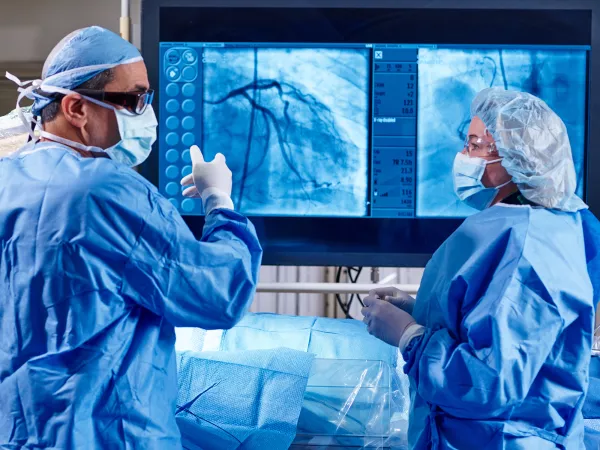Steps to enhance your wellness through Cardiology care
Steps to enhance your wellness through Cardiology care
Blog Article
Recognizing the Relevance of Cardiology in Modern Healthcare Solutions
Cardiology plays an important duty in modern health care, particularly as heart problem proceeds to be the leading source of mortality worldwide. Advances in diagnostics and therapy have actually transformed person treatment, allowing earlier treatments and enhanced results. The shift in the direction of preventative cardiology encourages individuals to manage their wellness proactively. As innovation remains to develop, the assimilation of ingenious services might better redefine cardiology's effect on public health, triggering a better exam of arising trends and their implications.
The Frequency of Heart Condition and Its Effect On Public Health
Heart condition stays the leading reason of fatality globally, its influence expands far past private clients to affect public health systems and economies. The high prevalence of heart problem positions a significant strain on health care resources, demanding raised funding for prevention, recovery, and therapy programs. Public health and wellness initiatives need to address risk variables such as excessive weight, cigarette smoking, and less active way of livings, which contribute considerably to the rising occurrence of heart conditions.Moreover, the financial concern related to heart problem is enormous, including not only straight medical expenses yet additionally indirect expenditures connected to shed productivity and premature death. Neighborhoods face obstacles in managing these expenses, often bring about variations in health care accessibility and outcomes. As the population ages and lifestyle-related dangers proceed to rise, the urgency for effective cardiology interventions comes to be vital. Subsequently, dealing with heart condition is not just an issue of private health and wellness yet likewise a vital public health and wellness concern.
Advances in Cardiac Diagnostics and Imaging Techniques
Current developments in cardiac diagnostics and imaging techniques have actually reinvented the field of cardiology, boosting the capability to find and monitor cardiovascular disease. Techniques such as heart MRI, CT angiography, and echocardiography have come to be increasingly advanced, supplying in-depth pictures of heart structures and features. These methods permit for the early identification of conditions like coronary artery disease, cardiac arrest, and valvular disorders.Moreover, improvements in non-invasive diagnostics, such as wearable modern technology and remote tracking gadgets, have actually encouraged individuals and health care providers. These devices promote real-time tracking of heart rhythms and various other crucial indications, leading to prompt treatments. Additionally, fabricated intelligence is being integrated into imaging evaluation, improving precision and performance in medical diagnosis.
Developments in Treatment Choices for Heart Conditions
Recent innovations in cardiology have brought about substantial technologies in treatment choices for heart conditions. These include advanced medical techniques that enhance procedural end results and emerging medications that offer brand-new avenues for therapy. As the field evolves, these innovations play an essential function in enhancing individual treatment and results.
Advanced Surgical Techniques
Advancements in medical techniques have transformed the landscape of cardiology, offering brand-new wish for patients with heart conditions. Minimally intrusive treatments, such as catheter-based treatments, have actually greatly minimized recuperation times and hospital remains. Techniques like robotic-assisted surgical treatment enhance precision, allowing doctors to navigate intricate anatomical frameworks with higher precision. Improvements in imaging modern technology facilitate real-time visualization throughout procedures, improving outcomes. Transcatheter aortic shutoff substitute (TAVR) exemplifies an innovation in treating aortic constriction, allowing shutoff replacement without open-heart surgical treatment. In addition, hybrid methods that incorporate catheter-based and surgical techniques provide tailored remedies for numerous cardiac concerns. These sophisticated surgical strategies not just enhance person security yet likewise expand therapy options, underscoring the critical role of advancement in modern cardiology practices.
Emerging Therapies and medications
As the landscape of cardiology remains to advance, arising medications and therapies play a crucial role in enhancing therapy choices for heart disease. Innovations such as unique anticoagulants and advanced lipid-lowering agents have actually changed the management of heart diseases, considerably lowering person morbidity and mortality. Furthermore, the growth of gene treatments and regenerative medication uses appealing avenues for treating problems previously regarded irreparable. Scientific tests are constantly revealing the efficiency of these treatments, pushing the borders of traditional therapies. In addition, the integration of electronic health and wellness modern technologies promotes tailored medicine, allowing for tailored therapy plans based on hereditary and way of living variables. Collectively, these innovations highlight the vibrant nature of cardiology, improving person outcomes and redefining standards of treatment in contemporary medical care.
The Function of Preventive Cardiology in Patient Care
Precautionary cardiology plays a necessary duty in individual care by focusing on the recognition of threat aspects that add to heart condition. Via way of life modification techniques and very early discovery techniques, doctor can successfully reduce the occurrence of cardio occasions - Cardiology. This positive strategy not just improves client results yet also promotes long-term wellness
Danger Factor Recognition
While heart diseases stay a leading reason for morbidity and death worldwide, reliable danger variable recognition acts as a foundation of preventive cardiology. Recognizing threat aspects such as high blood pressure, hyperlipidemia, family members, and diabetes background is necessary for very early intervention. Healthcare specialists use various screening methods to examine these variables, enabling tailored preventive actions. In addition, comprehending an individual's way of life choices, such as smoking cigarettes and physical lack of exercise, better informs danger assessments. This detailed examination enables medical professionals to establish personalized treatment strategies intended at mitigating dangers. By focusing on threat element recognition, health care systems can improve person end results and decrease the total problem of heart diseases, eventually adding to boosted public health approaches and resource allowance.
Way Of Life Modification Approaches
A wide range of researches highlights the important function of lifestyle alteration strategies in minimizing cardio disease risk. These strategies encompass dietary modifications, enhanced physical activity, smoking cigarettes cessation, and weight administration. By adopting a heart-healthy diet regimen abundant in fruits, veggies, entire grains, and lean proteins, individuals can lower cholesterol levels and high blood pressure. Routine exercise reinforces the heart and improves overall cardiovascular health. Additionally, quitting smoking cigarettes significantly reduces the risk of heart condition and enhances recovery prices for those with status quo. Weight administration additionally adds to cardiovascular health by mitigating other threat variables such as diabetic issues and hypertension. Implementing these way of living transforms not only advertises private well-being however additionally acts as a foundation of precautionary cardiology in individual treatment.
Very Early Detection Techniques
Way of life alterations substantially contribute to decreasing cardio disease dangers, yet they are most effective when coupled with early discovery discover this info here methods. Preventative cardiology emphasizes the relevance of identifying potential heart issues prior to they escalate into serious problems. Strategies such as blood stress tracking, cholesterol testing, and progressed imaging modern technologies like echocardiograms play essential duties in assessing cardiovascular wellness. Biomarkers and hereditary testing additionally enhance the accuracy of very early discovery, enabling tailored precautionary strategies. Regular cardiac risk analyses equip medical care service providers to intervene proactively, potentially preventing heart assaults and strokes (Dr Garcia). By incorporating these early discovery techniques right into regular care, individuals can take advantage of prompt way of life treatments and targeted therapies, inevitably enhancing and improving end results quality of life
Integrating Innovation Into Cardiology Practices
As advancements in innovation remain to reshape different areas, the combination of innovative devices and systems into cardiology methods has actually become vital for improving client care and results. Telemedicine systems permit cardiologists to monitor people remotely, enhancing access to care while reducing the look at here now worry on health care centers. Wearable tools, such as smartwatches, allow continual heart rate surveillance, informing both medical professionals and patients to prospective issues in real-time. Furthermore, expert system (AI) is being used to examine substantial amounts of cardiac information, helping in very early diagnosis and customized therapy plans. Advanced imaging methods, including 3D echocardiography, boost visualization of heart structures, leading to a lot more accurate interventions. Digital health and wellness records (EHRs) enhance patient details monitoring, ensuring that cardiologists have prompt accessibility to critical data. With each other, these technical innovations are changing cardiology, promoting proactive administration and boosted wellness end results for people with cardio conditions.
The Relevance of Individual Education and Interaction
Client education and learning and engagement play a pivotal role in the administration of cardiovascular wellness. By gearing up people with expertise concerning their problems, therapy alternatives, and way of living changes, healthcare providers empower individuals to take an energetic duty in their care. This aggressive method can bring about improved adherence to suggested drugs, nutritional modifications, and workout routines, inevitably lowering the threat of complications.Engagement also cultivates a strong patient-provider relationship, urging open interaction and count on. When individuals really feel informed and involved, they are more probable to voice problems and ask inquiries, which can cause far better scientific results. Furthermore, instructional resources, such as workshops or electronic platforms, can boost understanding and advertise self-management techniques. In general, prioritizing individual education and learning and involvement is important for enhancing cardio health, enhancing lifestyle, and minimizing healthcare prices related to cardio diseases.
Future Trends in Cardiology and Their Prospective Influence

Frequently Asked Questions
What Lifestyle Changes Can Reduce Heart Condition Threat?
The present inquiry addresses lifestyle adjustments that can substantially lower cardiovascular disease danger. Cardiology Jupiter. Adopting a balanced diet regimen, taking part in normal exercise, keeping a healthy and balanced weight, handling anxiety, and avoiding cigarette can especially improve cardiovascular health and wellness
How Can I Identify Very Early Indications of Heart Troubles?
Recognizing very early indicators of heart troubles includes surveillance symptoms such as upper body pain, shortness of breath, exhaustion, and uneven heartbeat. Timely understanding of these signs can prompt necessary clinical assessment and intervention for far better results.
What Are the Differences In Between Cardiologists and Cardiac Surgeons?
The differences in between cardiologists and heart surgeons hinge on their roles; cardiologists primarily take care of and detect heart problems via non-invasive approaches, while cardiac specialists execute operations to deal with structural heart problems. Each plays a vital, distinct role.

Just how Typically Should I Obtain My Heart Wellness Checked?
The regularity of heart wellness checks varies based upon specific risk aspects. Typically, adults need to undertake evaluations every one to 2 years, while those with existing conditions may require even more frequent analyses as encouraged by health care experts.
What Function Does Genes Play in Heart Problem Danger?
Genetics considerably affects cardiovascular disease danger, with familial patterns suggesting inherited conditions. Certain genetics can predispose individuals to high blood pressure, cholesterol issues, and other cardio troubles, highlighting the value of genetic testing in evaluating heart health. Heart disease continues to be the leading cause of death internationally, its effect prolongs much beyond specific clients to affect public health systems and economies. Public health and wellness efforts have to attend to danger variables such as excessive weight, smoking cigarettes, and less active way of lives, which add greatly to the increasing occurrence of heart conditions.Moreover, the economic worry associated with heart illness is tremendous, encompassing not just direct clinical prices yet also indirect costs associated to shed productivity and premature mortality. Preventive cardiology plays a vital duty in client treatment by focusing on the recognition of threat variables that add to heart disease. Fabricated knowledge (AI) and machine understanding are improving diagnostics and individual surveillance, making it possible for very early discovery of heart illness. The differences between cardiologists and heart surgeons lie in their functions; cardiologists mainly manage and diagnose heart conditions with non-invasive methods, while heart cosmetic surgeons execute medical procedures to fix structural heart problems.
Report this page